Dr. Tania Avilés Vergara is a linguist with a PhD in Latin American, Iberian, and Latino cultures from The Graduate Center of The City University of New York. She also holds a Master’s degree and a BA in Hispanic linguistics from the University of Chile. Her current research delves into the role of educational systems in the production and reproduction of linguistic stigmatization and inequality during Chile’s nation state building process. A native of Santiago, she has conducted extensive research in the Archivo Nacional Histórico, and from that experience she has edited two books that preserve historical documentation from the 19th century. Building off her passion for archives, she developed a language curriculum development project to teach Spanish as a heritage language using archival resources, published in the Journal of Latinos and Education. Currently, she is exploring the effects of implementing critical language awareness pedagogies to teach advanced grammar to Spanish heritage speakers. In Chile and New York, Dr. Vergara has taught diverse courses for native and L2 Spanish learners, including Spanish for Translation, Research Methods, Textual Analysis, and Hispanic Linguistics. At SIT Chile, she aims to build intercultural understanding with the students from her own experience as an international student in New York City.
Find out more about SIT’s International Honors Program in Human Rights
This post was originally published on the Cornell College News Center. It is reprinted here with permission.
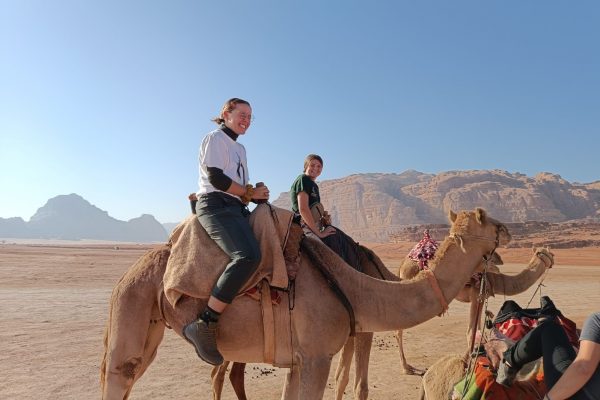
Cornell College senior Annabella Poulos has earned the Benjamin A. Gilman International Scholarship and is traveling abroad to Nepal, Jordan, and Chile this semester.
The Gilman Scholarship is sponsored by the U.S. Department of State and provides Pell Grant recipients with funding to be used toward internships or study opportunities abroad. “Last academic year, I found the IHP Human Rights Program offered through the School for International Training (SIT) Study Abroad. It’s an honors program for students that moves between three different countries throughout the semester,” Poulos said. “This was appealing to me because I would have the ability to experience three completely different cultures and communities and get a more hands-on approach to learning about human rights issues around the world.”
I am also doing a research project in all three countries on spatial justice through migration, citizenship rights, and right to land.
Poulos takes five courses in each country, language, Research Methods, Civil Society’s Role in Human Rights, Foundations of Human Rights, and Comparative Issues in Human Rights. He focuses on studying different human rights violations within each country, examining the similarities and differences.
“I am also doing a research project in all three countries on spatial justice through migration, citizenship rights, and right to land,” Poulos said. “This is something that I have been interested in throughout my studies at Cornell and have done previous research in other classes. It also ties into my future career goals of working to help migrants and refugees connect to their new home and community when entering the country.”
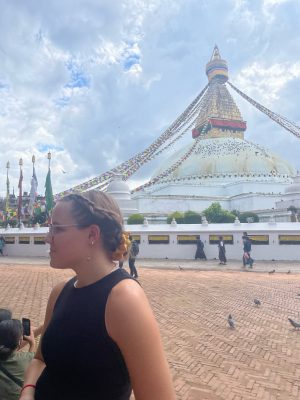
This Milwaukee, Wisconsin, native says this is the first time he has left the country. He says it’s one thing to read about these cultures in books, but it’s something else entirely to experience it in person.
“Some of my biggest takeaways from this program are the rights surrounding migrant workers and the struggles they face every day,” Poulos said. “Hearing personal stories and being able to learn about real cases and issues that people have and are going through has truly changed my perspective on transient workers and their rights. Tying into this, understanding the importance of citizenship documentation and having a home country, especially in the Middle East, has tied greatly into most of the issues we discuss every day.”
Poulos, who is a religion major at Cornell, worked with Assistant Professor Chris Hoklottube, Professor Steven Sacks, and Dungy Writing Studio Director and Director of Fellowships and Scholarships Laura Farmer on the Gilman Scholarship application.
Some of my biggest takeaways from this program are the rights surrounding migrant workers and the struggles they face every day.
“I was thrilled when Annabella won the Gilman Scholarship, particularly because his first attempt was unsuccessful,” Farmer said. “Annabella is a great example of the importance of tenacity and revision when it comes to pursuing scholarships and fellowships. The second time around he found a program that fit his professional and personal ambitions even better, and now he’s off on a great adventure.”
The Gilman Scholarship provides up to $8,000 for study abroad costs, based on the applicant’s financial need. Students can apply for the scholarship to any program, any country, and for any length of time; block classes abroad also count. The next deadline is March 9, and Farmer said she’s happy to answer questions for any interested students.
As for Poulos, he’s filling his days abroad with new experiences and opportunities while he’s abroad and is thankful for friends back on campus keeping him informed about what’s happening on the Hilltop. Now, he’s got his eyes set on the future and all the possibilities that lie ahead.
“I have become more confident in my skills and knowledge throughout this program and believe that will help me to become a highly qualified candidate when looking for future opportunities,” Poulos said.
Fulbright awards, thesis bring opportunities to dig deeper
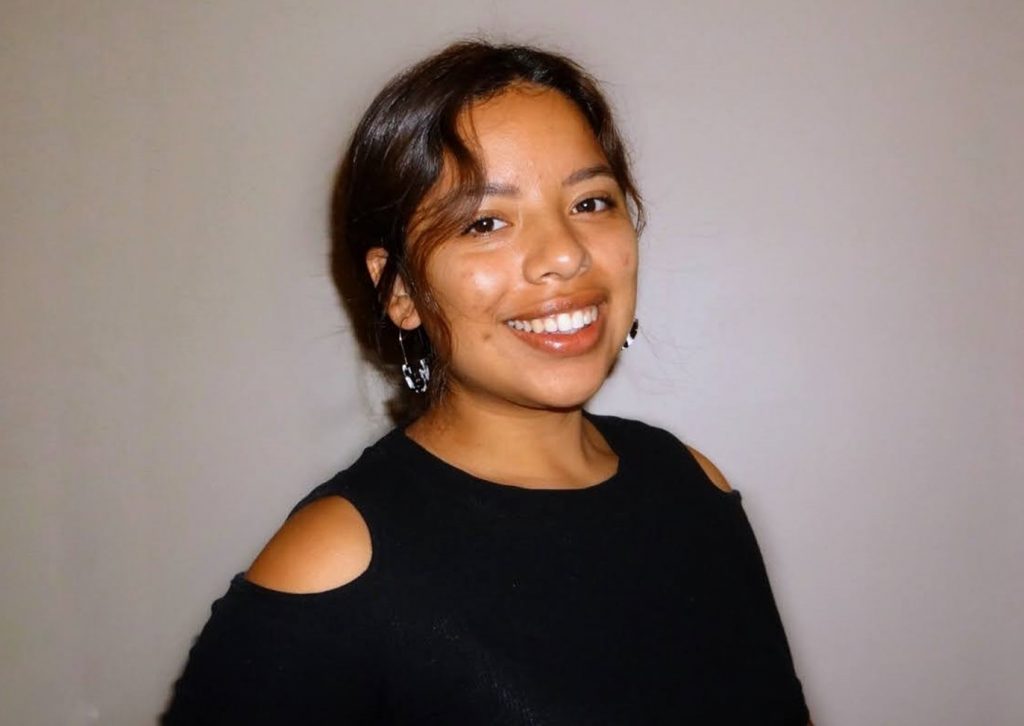
EXAMINING INDIGENOUS RESISTANCE TO EXTRACTIVE INDUSTRIES
Through SIT Ecuador, I partnered with Alexandra Almeida at Acción Ecológica to complete research on the negative impacts of the April 2020 oil spill in the Coca and Napo rivers on the local indigenous communities. This experience led me to focus my thesis research at Pomona College on Indigenous resistance to extractive industries in Ecuador, which have increasingly driven deforestation, human rights abuses, and public health crises, and have negatively impacted Indigenous peoples’ territories and cultures.
By Mariana Gonzalez Vega
SIT Ecuador: Comparative Ecology & Conservation Spring 2021
… if it is proven the Ecuadorian legal system is transparent and protects the rights of Indigenous communities, large corporations will be less bold to violate Indigenous rights.
Mariana Gonzalez Vega
Recent studies have found that Indigenous peoples are “exceptionally good” at protecting the biodiversity of their land. Ecuadorian Indigenous advocacy groups have mobilized against the nation’s neoliberal policies to protect their rights, the environment, and their way of life. A few ways they have accomplished this is through protests, demonstrations, disrupting oil operations, all despite facing police brutality and repression against demonstrators.
In 2019, the Waorani organized against the state and sued them for selling their land to oil companies without prior conversations with the local Indigenous communities (right to prior consultation). On April 26, they won the landmark case protecting 7 million acres of rainforest homelands that would have otherwise been opened to oil production plants, oil wells, and the construction of oil pipelines. This would unquestionably have polluted the air, water, and soil of the Amazon, in addition to increasing deforestation for the necessary oil production infrastructure.
The following year, at the beginning of the pandemic (April 2020), there was an oil spill on the Coca River caused by a ruptured pipeline, the contamination was reported to have reached as far as Peru. The Amazonian rivers are the lifeline of the forests, and the loss of the Coca river as a source of clean water or food has had an immeasurable impact on the local ecosystems and communities. The Kichwa people brought a lawsuit against the Ecuadorian government and oil companies over their liability in the country’s biggest oil spill in more than 10 years.
The appeal was rejected in lower courts, which goes against various Indigenous protections in the Constitution and against the constitutional rights of Nature itself. Here we have two Indigenous-resistance environmental cases over two Amazonian environmental and cultural threats. One receives a favorable outcome and the other does not.
Which factors impacted the differential results of these two cases? I will break down factors that potentially influenced the outcome of these two cases: international environmental and Indigenous law, domestic law and courts, the Ecuadorian constitution, social movements, and domestic politics.
After the substantial success of the Waorani people, there was a lot of hope that it would set a new precedent for Indigenous people to defend their rights through the Ecuadorian legal system. Measures such as the 2010 Transparency International Corruption Perceptions Index, which ranked Ecuador 146/178 in 2009, demonstrate Ecuadorians do not hold much trust in the legal system. This is why Indigenous activists often use methods outside the courts to defend their rights as aforementioned: protests, demonstrations, disrupting oil operations.
These methods can be very dangerous for activists involved as they face abuse, legal persecution, police brutality, and sometimes incarceration or death.
By identifying which factors were most influential in the positive outcome in the Waorani case, Indigenous activists can leverage that information to their advantage. From a financial position, Ecuadorian Indigenous environmental activists can’t “buy” political clout like large oil and mining international corporations. From an optimistic perspective, if it is proven the Ecuadorian legal system is transparent and protects the rights of Indigenous communities, large corporations will be less bold to violate Indigenous rights.
The research may highlight faults in the Ecuadorian legal system that will pave the way for justice reform. I predict it will highlight the strengths in the organization of the Waorani or strengths in the tactics of the Waorani legal team, which other Indigenous groups may replicate in their legal cases.
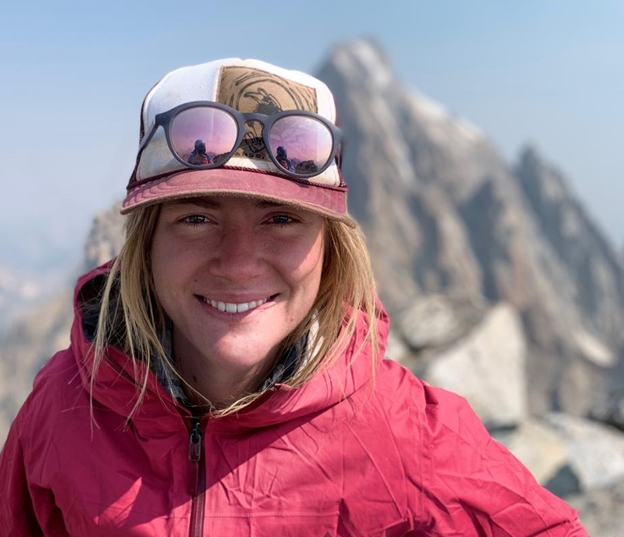
A RARE FOCUS ON THE PARAMO PEATLANDS
By Lenka Doskocil
SIT Ecuador: Comparative Ecology & Conservation Spring 2020
I remember the first time I saw the páramo: vast and rolling, with a deep power, this region instantly captured my imagination. Tall, jagged mountains presiding over meadows and peatlands nestled in glacial valley bottoms and small depressions, the resemblance is so like the alpine of my Colorado home that my heart ached. But the páramo differs vastly from Colorado’s alpine ecosystems: different plant communities, different soil properties, different hydrology, and different histories.
Many mountain communities, especially large urban centers such as Quito and Cuenca in Ecuador, rely on the slow release of water from the páramo’s high-elevation grassland ecosystem.
Lenka Doskocil
Many mountain communities, especially large urban centers such as Quito and Cuenca in Ecuador, rely on the slow release of water from the páramo’s high-elevation grassland ecosystem—famous for high water retention capacity and elevated levels of endemism—to maintain sufficient streamflow and a year-round water supply.
Rapid glacial melt and human population growth have triggered immense concern over the future of water resources in Andean communities. This threat has a distinct potency in Ecuador, where more than half the population depends on water originating from páramo regions. Peatlands make up roughly a quarter of this system. They play significant roles in the famed hydrologic properties of the páramo and act as invaluable carbon storage systems.
Colorado, too, contains networks of peatlands (called fens) that function as critical carbon and water storage systems, wildlife habitat, and protectors of biodiversity. For years, I have worked on restoration and research projects involving mountain wetlands, including fens, and the opportunity to explore similar ecosystems in the páramo was exciting to me.
I was in Ecuador for the SIT Comparative Ecology and Conservation program in spring 2020 and was forced to return home due to the onset of COVID-19. As such, I completed my independent study project (ISP), an integral part of SIT’s curriculum, remotely. I began looking for ways to return to the páramo and found the Fulbright U.S. student program.*
I received a research grant to study peatlands in Ecuador under the mentorship of Dr. Esteban Suárez, a professor at Universidad San Francisco de Quito and a páramo ecosystem expert. I will be assisting in his lab on three different projects: active peatland restoration techniques, peatland characterization and mapping, and quantifying carbon dioxide and methane fluxes. Research on páramo peatlands has been sparse when compared with research efforts in other neotropical ecosystems, despite their significance.
I will be working with Dr. Suárez and his team to test two planting techniques in a peatland near the Antisana volcano where the introduction of pasture grasses has proved stubborn. I will also be helping with field data collection on a nationwide peatland mapping and characterization effort. The national vegetation map for Ecuador does not differentiate peatlands from the surrounding paramo, which results in a lack of protection and understanding for these critical systems. The carbon and methane fluxes project compose a part of this national effort, and will compare greenhouse gas fluxes from impacted, resorted, and intact peatlands.
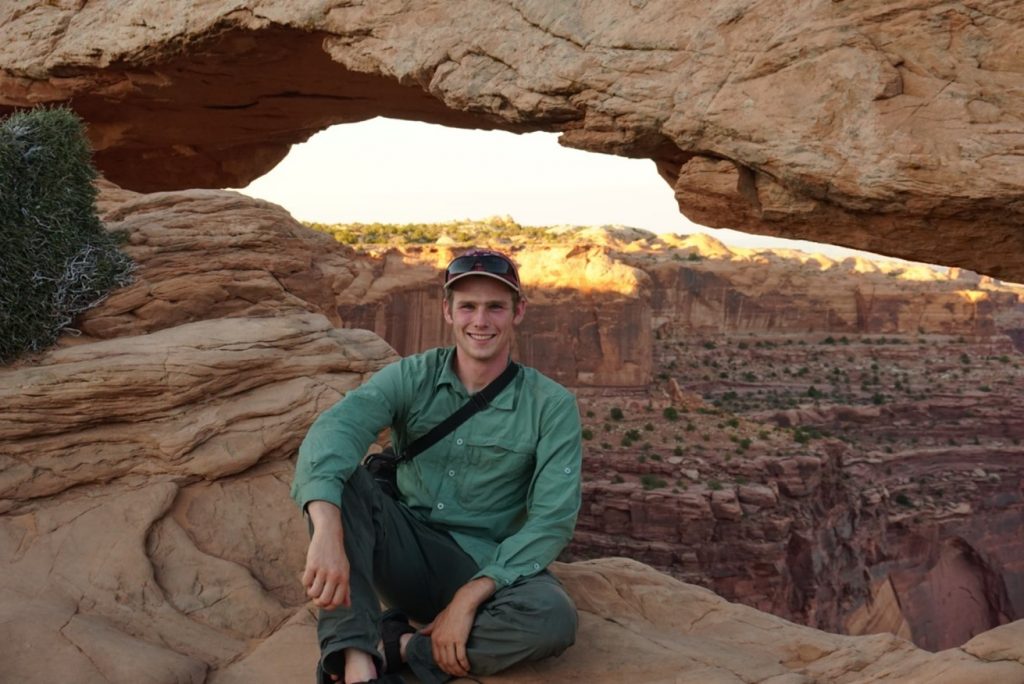
CONNECTING LAND USE AND CLIMATE CHANGE IN CHILE
By Sage Fox
SIT Ecuador: Comparative Ecology & Conservation 2018
Ever since studying abroad with SIT Ecuador in 2018, I wanted to return to South America as a researcher. After completing my bachelor’s degree, I applied for a Fulbright Open Study/Research grant* in Chile. In fall 2021, I was awarded the grant and I started my year in Chile at the end of February 2022.
My work has been highly varied and incredibly rewarding so far, with everything from field work in remote Patagonian fjords to complex meetings with stakeholders and scientists.
Sage Fox
I am now living in the city of Concepción, working on two large research projects while auditing graduate classes at the Universidad Católica de la Santísima Concepción (UCSC). The research projects are complementary and both are funded by the Chilean government. Taken together, they aim to characterize the value of freshwater provisioning to socioecological systems in northwestern Patagonia, as well as project the threats to water provisioning posed by climate change and land conversion.
The first project seeks to characterize current hydrological signatures of five major rivers, quantify the importance of these rivers’ inputs to biochemical processes and ecological functions in the fjords they drain into, and assess the risk of hydrological signature changes to ecosystems and aquaculture under drought scenarios.
The second project is focused more narrowly on the role of land-use practices in exacerbating or mitigating the impacts of climate change on southern Chile’s aquaculture industry. To that end, the project’s focus is threefold. First is to describe the relationship between river hydrological signature and production success for salmon and mussel farming. Second is to project hydrological signatures under various climate change and land use scenarios. Third is to assess the economic value of water provisioning as an ecosystem service to the aquaculture industry under various land use and climate change scenarios.
Within these broad projects, I am mostly working on river monitoring, economic analysis, water governance, and public outreach dimensions. My work has been highly varied and incredibly rewarding so far, with everything from field work in remote Patagonian fjords to complex meetings with stakeholders and scientists. I am incredibly grateful to both SIT for initially inspiring me to pursue research abroad, and to the Fulbright U.S. Student Program for supporting my experience here in Chile.
*The Fulbright Open Study/Research Award, part of the U.S Student Program, supports U.S. graduate students or recent graduates for one year in conducting thesis and dissertation research, or independent research with audited coursework. These competitive programs offer opportunities for young professionals to network, learn about new cultures, practice a second language, and develop professionally.
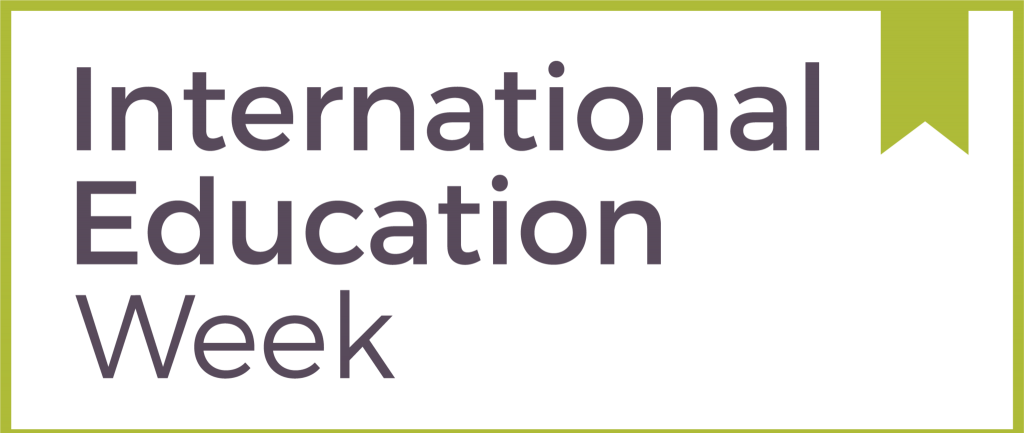
Each year, the U.S. Departments of Education and State designate a week to spotlight the importance of international education. “International education enhances cultural and linguistic diversity and helps to develop cross-cultural communication skills, foreign language competencies, and enhanced self-awareness and understanding of diverse perspectives,” this year’s statement reads.
At SIT, we welcome this opportunity to focus on the importance of the work we do year-round. And there is no better way to highlight this work than through the voices of our students and alumni.
Halle Catalina Brown studied abroad on SIT Ecuador: Comparative Ecology and Conservation in 2019. That experience was so foundational that she continues to blog about it and the Ecuador connections she made during her time there.
Ecuador study abroad excursion feels like an ‘unimaginable, wild dream’
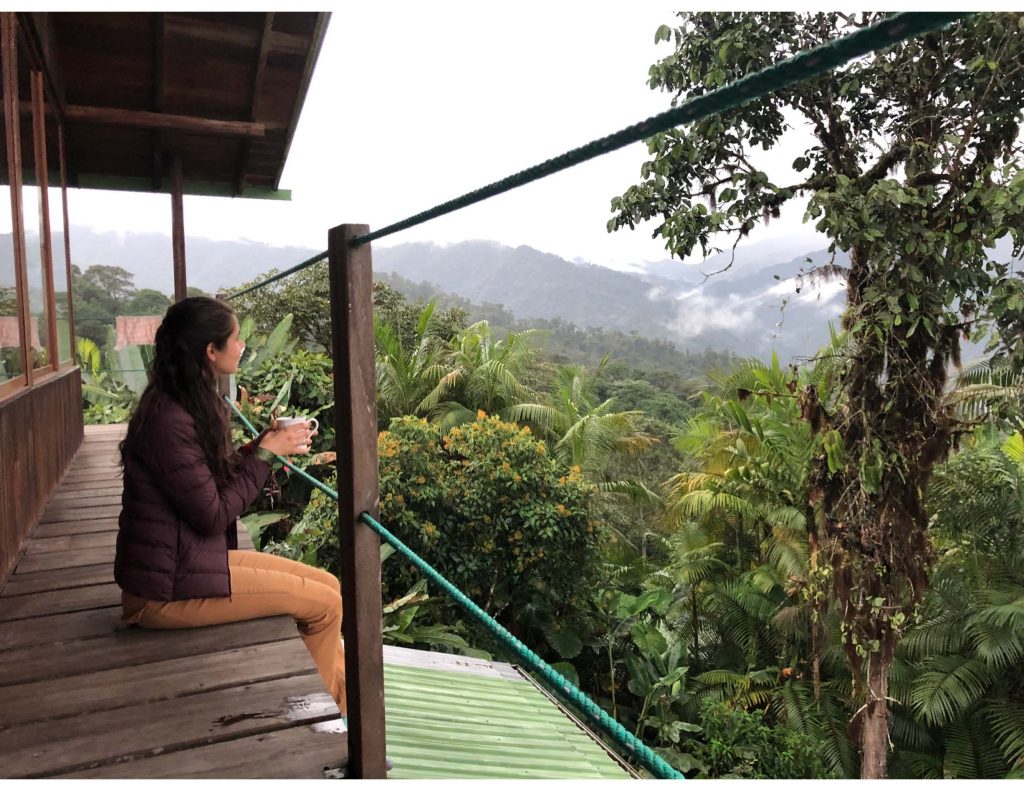
My heart sank as I observed the destruction of some of the most wild and beautiful nature I’ve ever seen and the deep suffering of the people.
“I fell in love with the Amazon,” Halle writes in this blog post. “… Oftentimes, I would remind myself that the nature I was exploring has only been seen by a countable quantity of eyes. Possibly countable only on my fingers and toes. Which is the reason I find it so important to also provide education on the ways we are destroying this wildness.”
She goes on to describe in detail the shocking corporate and government practices that are destroying natural resources and local communities. “My heart sank as I observed the destruction of some of the most wild and beautiful nature I’ve ever seen and the deep suffering of the people. And we are all to blame.”
It’s no doubt that the pandemic has challenged our students’ ability to physically cross borders and experience other cultures in person, but that hasn’t deterred many students who are intent on enhancing their international education and expanding their world view.
Chile virtual internship offers new ‘vantage point’ on social change
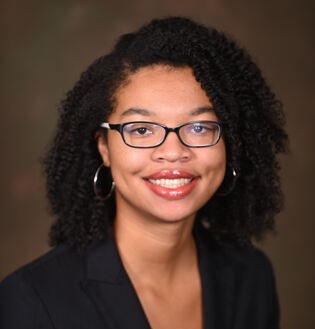
I learned a lot about Chilean culture and was able to experience it from a close perspective …
In fall 2020, Spelman College international studies major Alix Swann joined SIT for Chile: Virtual Internship in Education & Social Change Organizations. “At first, I was apprehensive about the online experience, but it ended up being incredibly impactful,” Alix told us. “I learned a lot about Chilean culture and was able to experience it from a close perspective, as well as work with an organization who does a lot of work for women’s rights on the ground.”
University of Arkansas Honors College Fellow Meghana Chithirala, a pre-med junior, had planned to spend the summer polishing her language skills in France. When the pandemic interrupted those plans, Meghana joined SIT Kenya: Virtual Internship in Public Health in the Tropics.
SIT virtual internship with Kenyan hospital offers insights on public health
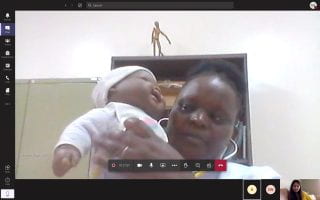
This internship was honestly one of the greatest opportunities I had been given.
Meghana’s rotations—in an HIV clinic and pediatrics, critical care, and neonatal units at Jaramogi Oginga Odinga Teaching and Referral Hospital in Kisumu—were an eye-opening introduction to public health, as well as the benefits of online internships. “I was exposed to a multitude of issues in the Kenyan health care system and how third-world countries are trying to utilize their limited resources,” Meghana wrote.
“This internship was honestly one of the greatest opportunities I had been given,” she concluded.
Gretta Marston-Lari was born in Peru and came to the United States with her parents as a young teen. A Latin American studies and theater major at Macalester College, Gretta returned to Peru with SIT on a program focused on indigenous communities and globalization.
Semester in Peru inspires musical
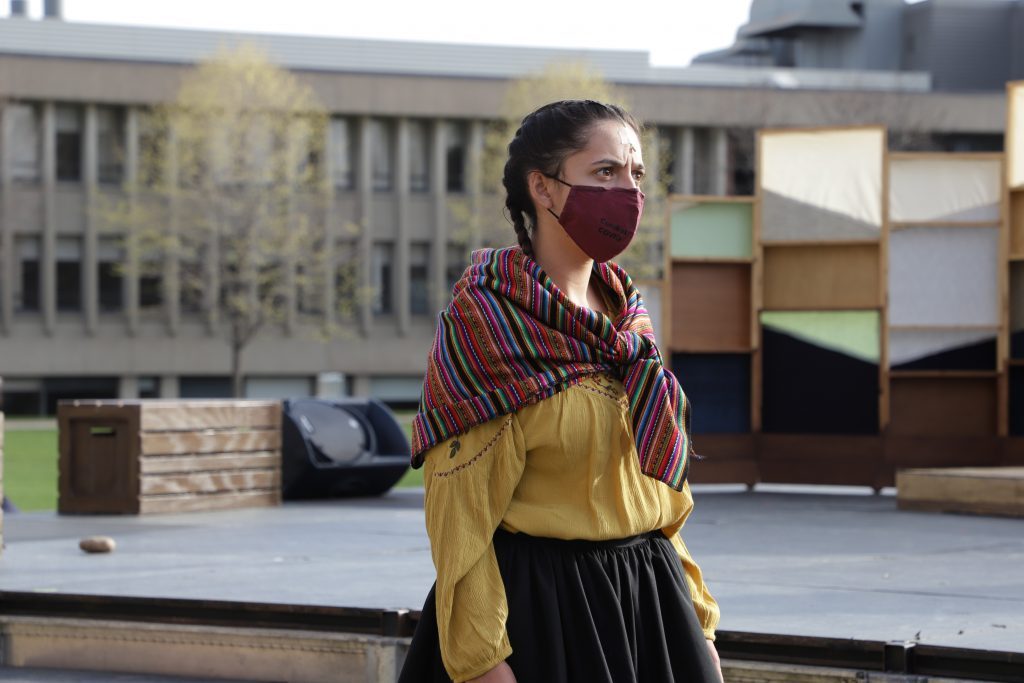
I felt that I was finally learning what I had been longing to learn in all of my college courses.
“I felt that I was finally learning what I had been longing to learn in all of my college courses. … The study abroad experience fed my soul in a way that was really needed and that I had been waiting for since I left Peru at age 14.”
As her final project, Gretta wrote a musical, Como la Tierra (“Like the Earth”) that tells the story of an indigenous community’s struggle to block a copper mine. “We had been learning a lot about how indigenous bodies of knowledge exist in an oral tradition. To me, theater in a large way is an exchange of knowledge, and it’s oral. I thought this was the best way I could connect to what was happening and to contribute to further their struggle,” she told us.
During an exceptionally challenging year, Danielle Purvis earned her MA from SIT in Climate Change & Global Sustainability, a one-year global program that includes a semester each in Iceland and Zanzibar.
‘The ways of this world must change‘
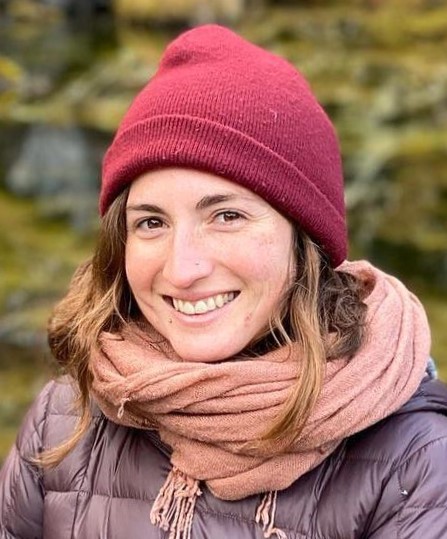
… we get to be on the front lines of building new bridges and creating a new way of life.
“On top of the typical challenges of a graduate degree, the Class of 2021 completed their degrees entirely or almost entirely during a global pandemic. My cohort, for instance, experienced a lock down, then an evacuation, and then a lock down and an evacuation,” Danielle told her graduating class during a moving speech at her commencement in August.
“I am completing this experience with a blend of gratitude for the resources available to me and a commitment to see these bountiful resources distributed as equitably as possible. I am completing this experience with a global lens of how we are inextricably connected to each other and to our natural environment. And I know, more than ever before, that the ways of this world are unsustainable and must change, and that we get to be on the front lines of building new bridges and creating a new way of life,” she said.
SPRING FORWARD
What SIT students brought with them from their
spring 2020 study abroad experience
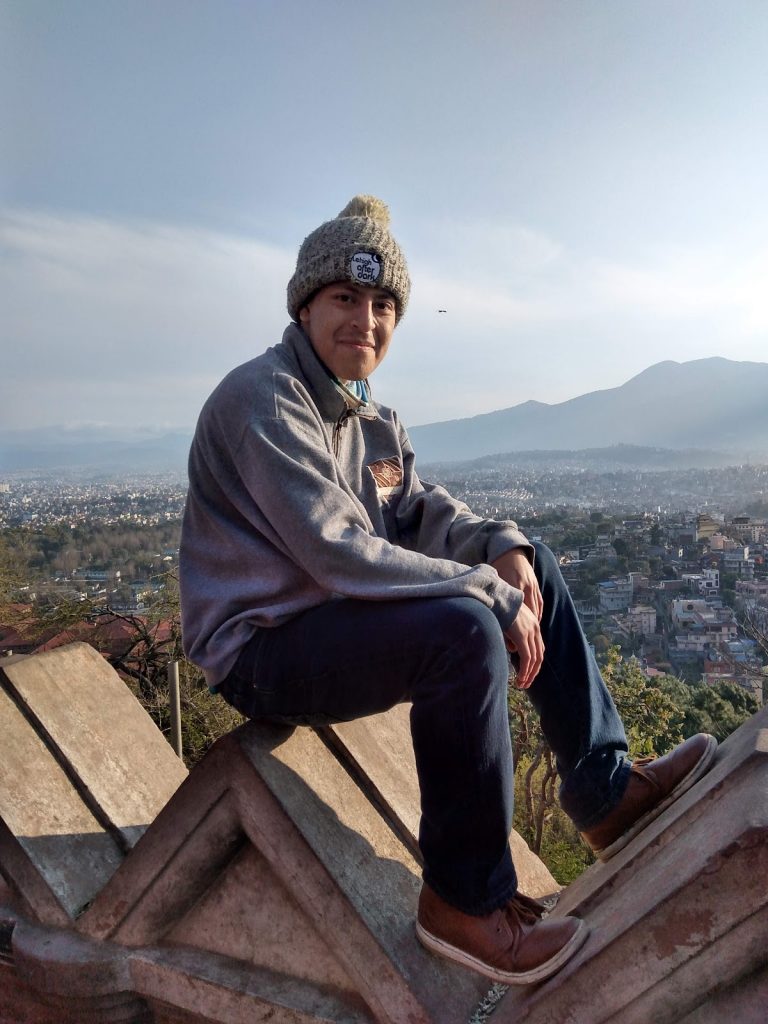
We went to the highest peak of the city. The the air was cold, and it was barely light until the sun slowly rose behind the hills illuminating a breathtaking landscape of mountains, valleys, and the sparkling blue lake.
Steven Escobar-Mendez
Sophomore, Lehigh University Class of 22
SIT IHP Human Rights: Movements, Power and Resistance (Nepal, Jordan and Chile)
The best thing about the IHP program was traveling to different parts of the world in a semester with such an amazing group. I have never been to the other side of the world, so it was an incredible opportunity made possible through aid from my university, the program, and the Gilman International Scholarship.
There were so many memorable moments, but a particularly vivid one was watching the sun rise in Pokhara, Nepal. We went to the highest peak of the city. The the air was cold, and it was barely light until the sun slowly rose behind the hills illuminating a breathtaking landscape of mountains, valleys, and the sparkling blue lake.
The program was sadly cut short due to Covid-19 when were in Amman, Jordan. However, lessons on multiple aspects of human rights from UN officials and NGOs will have a lasting impact on me.
Thanks to SIT, I will continue studying political science and global studies with firsthand experience.
Launching this fall: MAs in Global Health Policy, Administration & Management; International Education; Diplomacy & International Relations
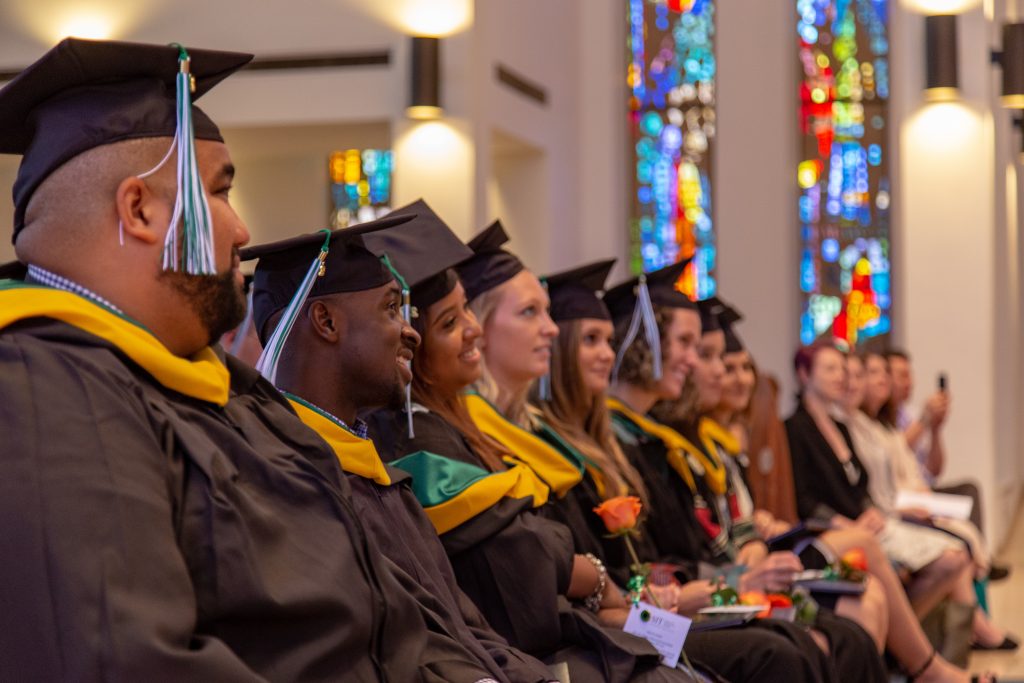
BRATTLEBORO, Vermont – School for International Training has received accreditation for three innovative new global master’s degrees in Diplomacy & International Relations; International Education; and Global Health Policy, Administration & Management.
The Vermont-based SIT Graduate Institute received its accreditation from the New England Commission of Higher Education, the regional accreditation agency responsible for colleges and universities in New England. The one-year Global MAs are delivered entirely abroad, with coursework in SIT centers around the world capped by students’ final practica, which, for most programs, may be completed in the U.S. or abroad.
The new MAs launch in September, led by faculty in the U.S., South America, Europe, the Middle East, Southeast Asia, and Africa, who will guide students through programs designed to develop leaders who can respond to some of the most critical global issues of our time, including global health crises, economic inequality, natural resource degradation, and political and ethnic conflict.
“These one-of-a-kind global degrees build on SIT’s nearly 90-year history of training the next generation of innovative, compassionate global leaders at a time when the world faces unprecedented challenges,” said SIT President Dr. Sophia Howlett. “Our dedicated faculty around the world have carefully designed these programs to help students learn to tackle urgent issues of the day in every corner of the globe and turn those skills into careers.”
The new degrees expand on SIT Graduate Institute’s stable of other accredited global MAs in Climate Change & Global Sustainability; Development Practice; and Humanitarian Assistance & Crisis Management, also based in cities around the world.
SIT also offers low-residency master’s degrees in Sustainable Development, Peace & Justice Leadership, TESOL, International Education, and a self-designed degree in Intercultural Service, Leadership & Management, putting SIT at the forefront of global institutions sending effective leaders, professionals and change-makers into the world.
Many of SIT’s graduates go on to work in high-level positions with organizations such as the United Nations, nongovernmental organizations, and major foundations across the globe.
To learn more about SIT Graduate Institute programs, visit our website. To learn more about the School for International Training and its programs for students at every age on every continent, see SIT’s website.
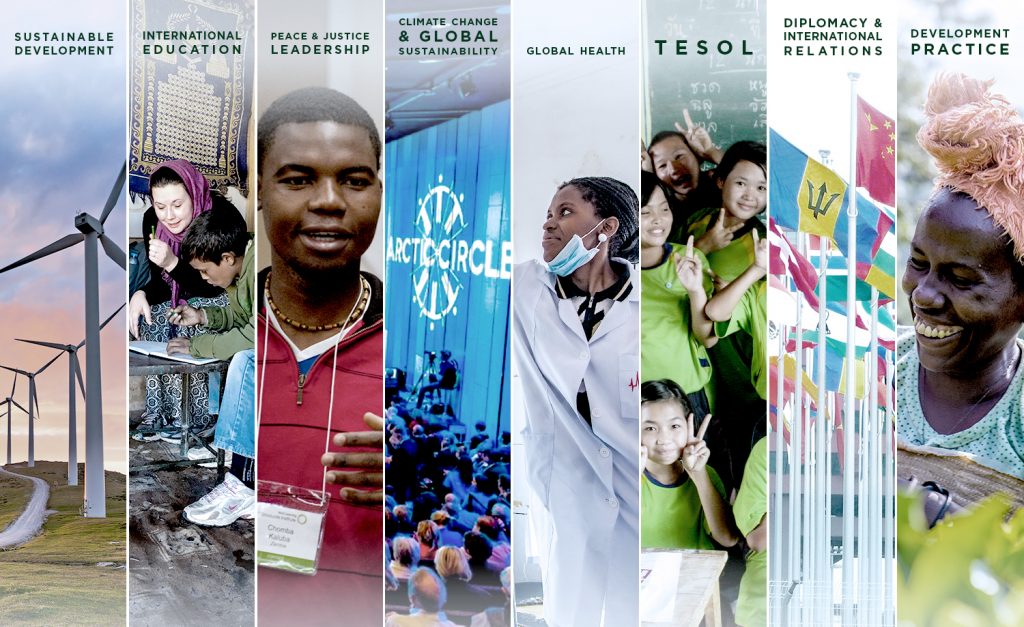
Meet our Global and Low-Residency program chairs to find the MA that’s right for you
This new SIT webinar series presents a great opportunity to learn about SIT’s Global and Low-Residency master’s degree programs.
Global Programs Webinar: Wednesday, January 8 – 9 a.m. (Eastern U.S.) with Dr. Joe Lanning (MA in Development Practice) and Dr. Richard Walz (MA in Climate Change & Global Sustainability)
Low-Residency Programs Webinar: Friday, January 17 – 12 p.m. (Eastern U.S.) with Dr. Bruce Dayton (MA in Peace and Justice Leadership) and Dr. Udi Butler (MA in Sustainable Development)
Global Programs Webinar: Tuesday, January 21 – 12 p.m. (Eastern U.S.) with Dr. Bruce Dayton (MA in Diplomacy & International Relations) and Dr. Sora Friedman (MA in International Education)
Low-Residency Programs Webinar: Wednesday, January 22 – 4 p.m. (Eastern U.S. ) with Dr. Leslie Turpin (MA in TESOL) and Dr. Sora Friedman (MA in International Education)
Global Programs Webinar: Monday, January 27 – 9 a.m. (Eastern U.S.) with Dr. Steve Wandiga & Dr. Azim Khan (MA in Global Health, Administration & Management) and Dr. Bayan Abdulhaq (MA in Humanitarian Assistance & Crisis Management)
Lorena graduated with a degree in tourism from the National Training Institute (INACAP) in 2012. Since then, she has worked in cultural management. She trained in formal and non-formal education spaces and has coordinated educational activities with young people from Arica. Lorena has also worked in promotion, coordination, and assistance for private cultural institutions and in various scientific projects with museums in the region and the country. Since 2017, Lorena has worked in pedagogical evaluation initiatives with the Institute of Educational Informatics at the Universidad de la Frontera.
Lida pursued her undergraduate studies in biology and later received her PhD at the University of Buenos Aires, studying the conservation biology of dolphins using molecular genetics tools. Originally from Buenos Aires, she first had contact with marine mammals in Ushuaia, Tierra del Fuego, at the age of 22, when she traveled for an internship with Dr. R. Natalie P. Goodall, a renowned expert in the basic biology of sub-Antarctic and Antarctic seals and cetaceans. Since then, she has been working with the Museo Acatushún de Aves y Mamíferos Marinos Australes at Estancia Harberton, Tierra del Fuego, and she is a board member of the Natalie Goodall Foundation. Since 2012, Lida has traveled to Antarctica during summer seasons aboard research vessels to carry out different biodiversity surveys and also as a staff member in a small tourist cruise ship. Lida is interested in the human dimension of conservation and coastal and marine protected areas, among other things. She works in conservation management for the national protected areas of Argentina. Lida enjoys her free time in the scenic city of Ushuaia, riding her bike, practicing climbing, and playing cello.
We are pleased to announce the winners of SIT’s 2019 Photo Contest.
Thank you to all who submitted! The quality and number of submissions was remarkable and revealed SIT students’ great eye for capturing the learning experiences they’re enjoying around the world.
Here are this year’s talented winners.
Learning Moments
Sage Fox
Oregon State University
Ecuador: Comparative Ecology and Conservation, fall 2018
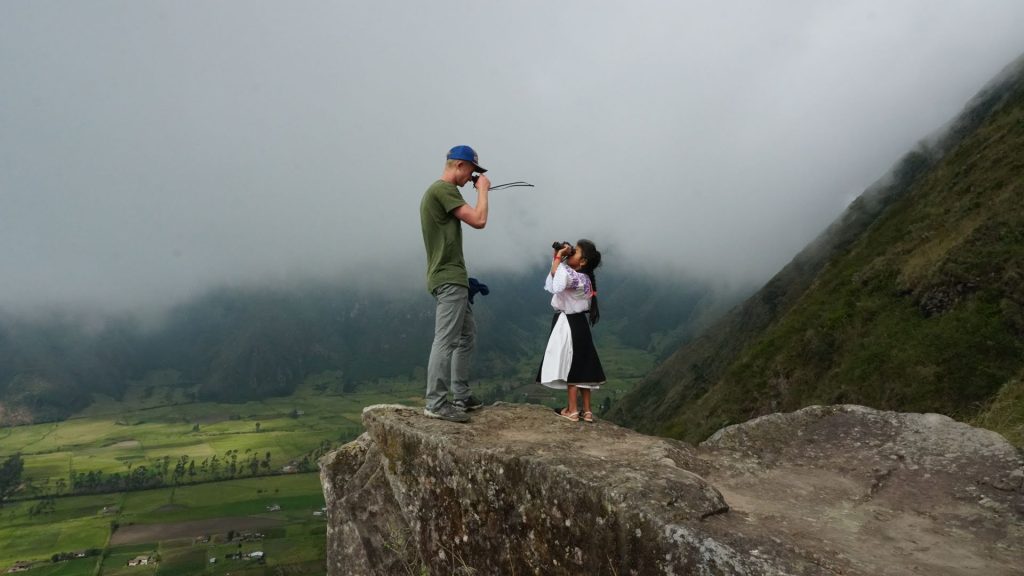
My friend Caleb and I conducted our ISP in a fairly remote village of Ecuador. When we first met our host family, our host sister took us on a hike to a rock that overlooks the valley below. She was very curious about us, and she was especially intrigued by our binoculars. When we reached the summit, she borrowed my binoculars to see if she could find a bear or her house below. Soon losing interest in that, she turned to look up at Caleb through the binoculars.
Action Shots
Anya Otterson
University of Denver
Mongolia: Nomadism, Geopolitics, and the Environment, fall 2018
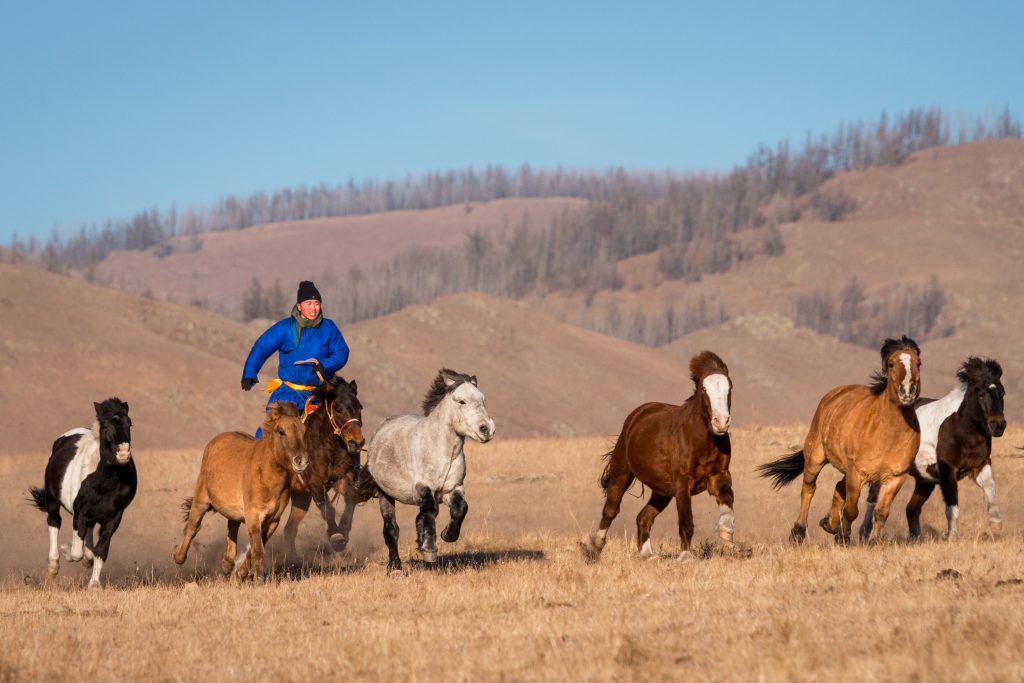
During my internship, we ran into a herd of my boss’s horses as we were driving back to camp one day. He got on the horse I was riding, put on my deel and boots, and herded them as fast as he could across the steppe while I drove ahead with my other boss taking photos.
The World Is Your Classroom
Thomas D’Anieri
Claremont McKenna College
Mongolia: Nomadism, Geopolitics, and the Environment, fall 2018
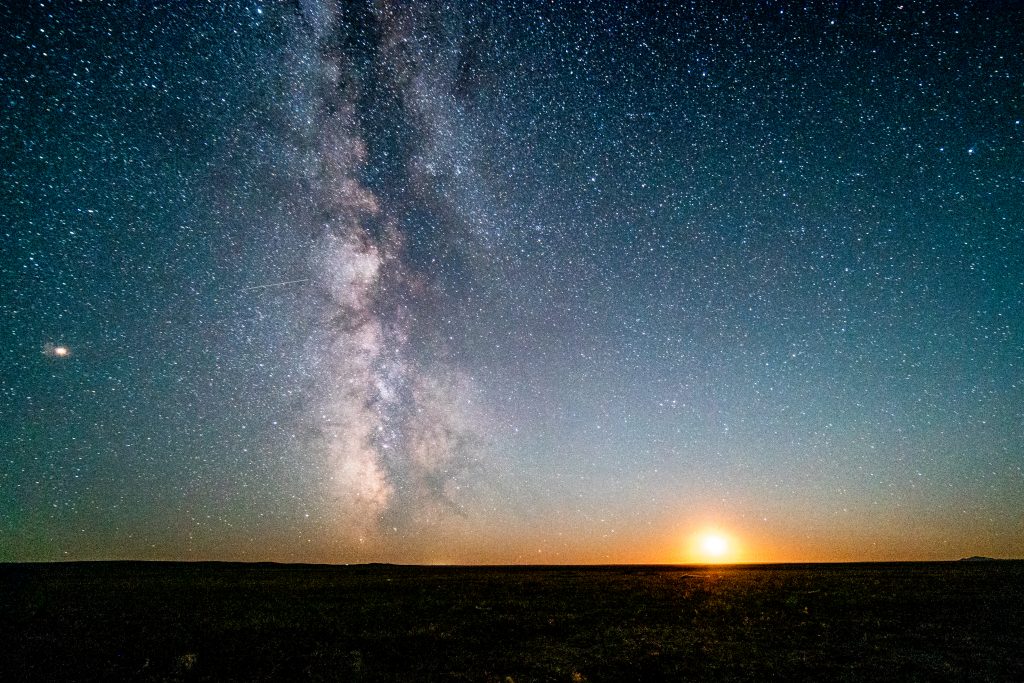
I woke up and had to use the bathroom, so I crawled out of my wool sleeping bag, put on two extra layers of clothes, strapped up my dog-fur boots, tiptoed out of the ger, and stopped in my tracks. I had never seen anything like it. The Milky Way hung above me and was unbelievably clear, yet the moon remained on the horizon. To even see the Milky Way in America it must be a new moon, or pitch dark long after the moon has set. Yet here the Milky Way sat in all its glory, rising next to the bright, nearly full moon.
Challenging Perspectives
Alyssa Avila
University of San Francisco
India: Public Health, Gender and Community Action, spring 2018
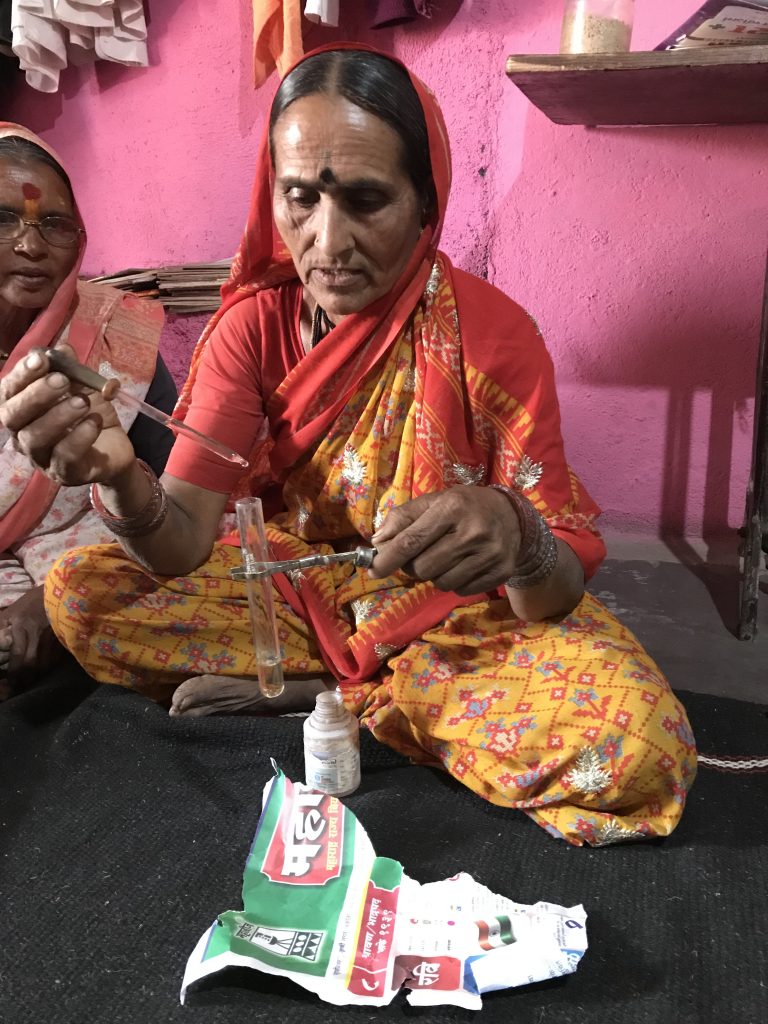
A village health worker from the Comprehensive Rural Health Project in Jamkhed demonstrates how she provides care and educates pregnant women within her own community.
Cityscapes
Madeline Ninno
Tulane University
Argentina: Transnationalism and Comparative Development in South America, fall 2018
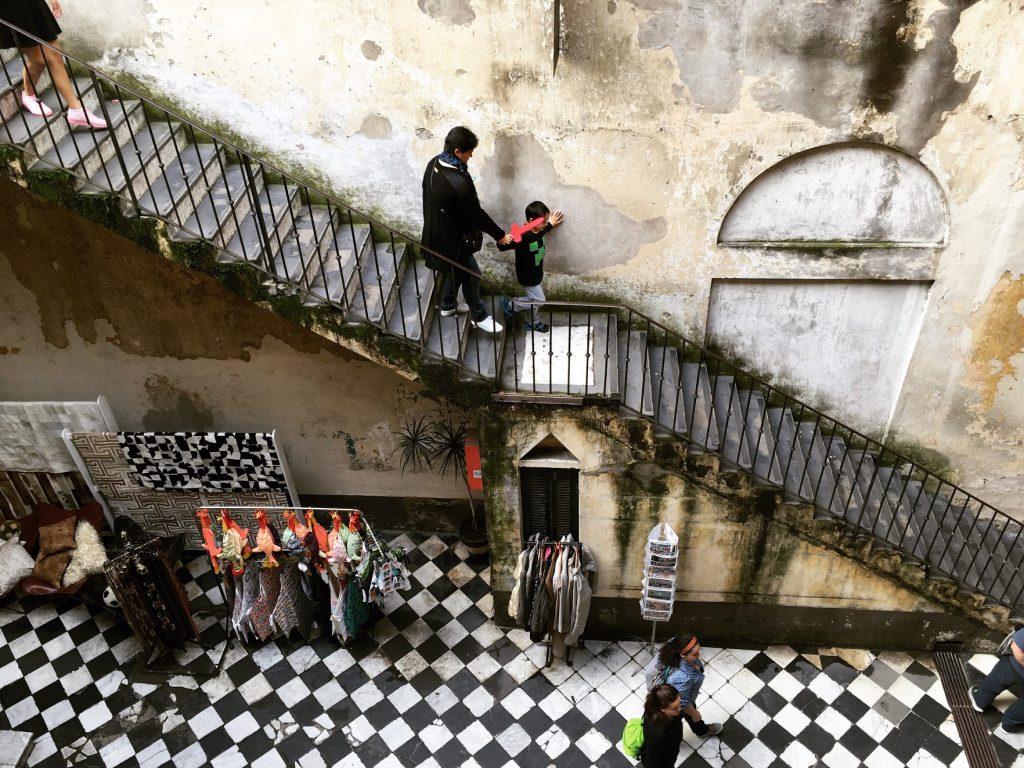
A courtyard in San Telmo, Argentina.
Honorable Mentions
Anna Stubbs
Carleton College
Chile: Public Health, Traditional Medicine, and Community Empowerment, fall 2018
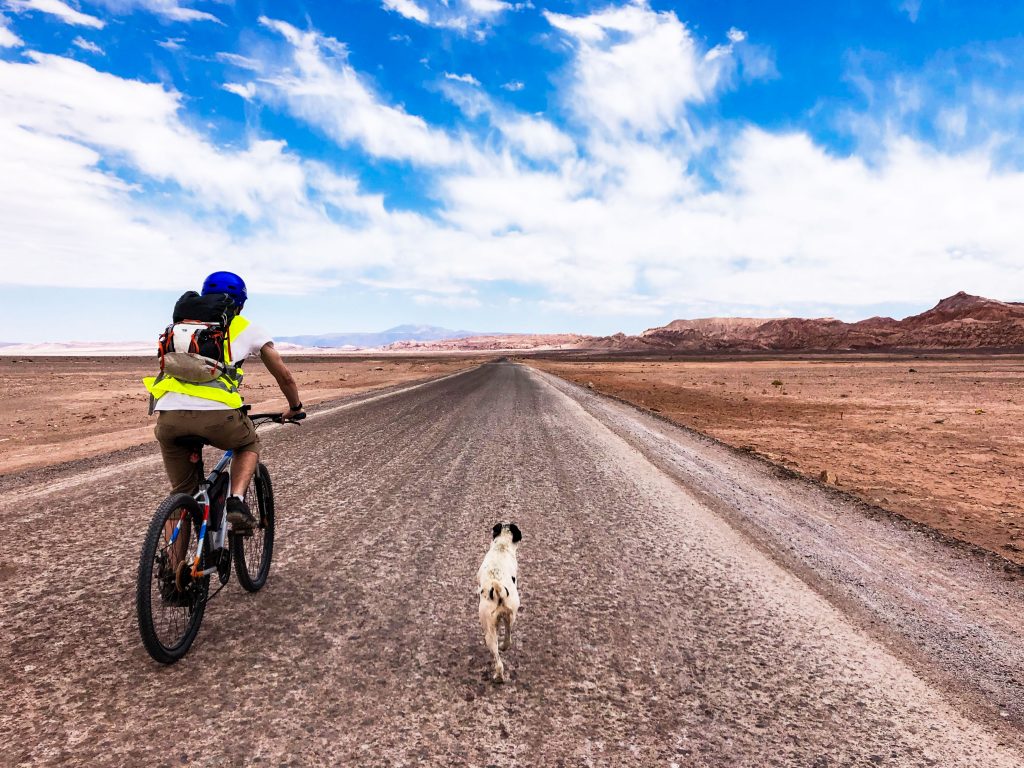
Sage Fox
Oregon State
Ecuador: Comparative Ecology and Conservation, fall 2018
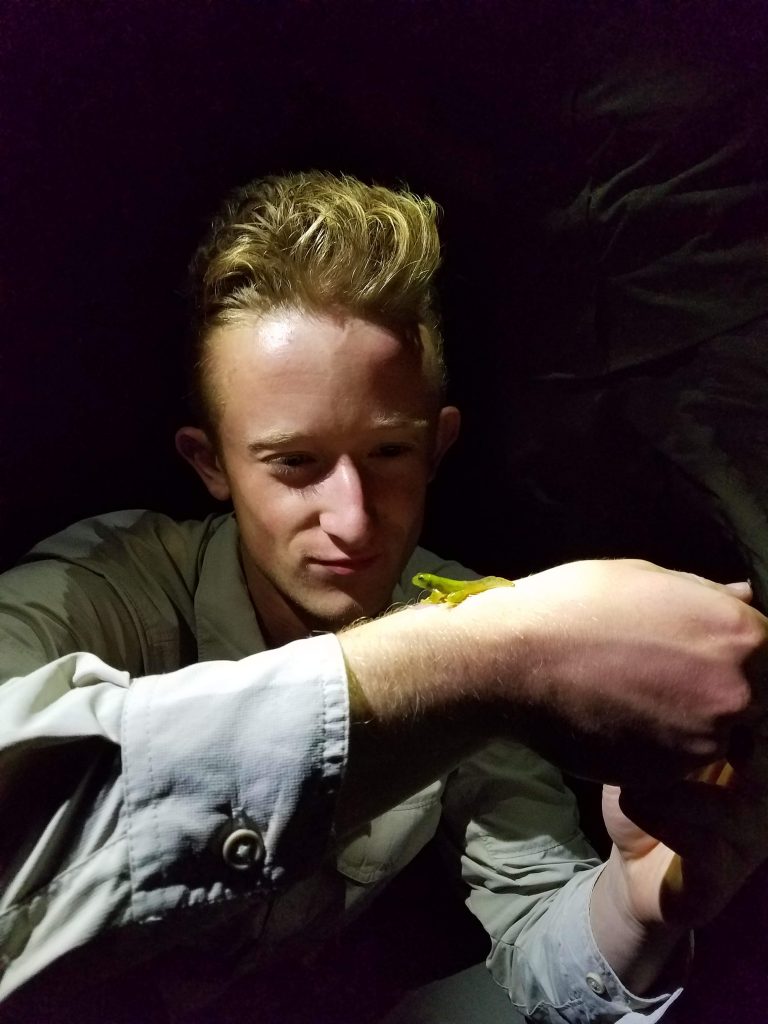
Dema received her bachelor’s and master’s degrees in law from Jordan University. She has completed her required legal training and is expecting to take the Jordanian Bar exam shortly. She is qualified in many aspects of both civil and criminal law within Jordan and has completed over 35 training courses in legal issues. These courses dealt with civil and criminal law, and several pertained specifically to the rights of the child or the rights of women. Additionally, she is trained in international treaties and agreements pertaining to related human rights issues. Since 2004, she has volunteered at the National Center for Human Rights in Jordan. She is also a member of Talal Abu-Ghazala, a famous law firm in Jordan that trains in civil and criminal law. Her past experience includes two and a half years in a law firm as a legal trainer. She has been a homestay coordinator for SIT since 2008 and was an advisor for SIT students studying topics related to women, culture, and youth.
Yanik is the director of Passage International, which facilitates experiential education and global understanding by creating opportunities for students to live and learn abroad. He has guided several treks in Nepal and India and has worked with study abroad programs since 2002. Yanik participated in the No Education: No Freedom, No Opportunity seminar in Germany on whether education should be liberalized. He was involved in an Antenna Foundation project — a dramatized TV series that raised issues on women’s rights and attempted to break taboos. He has been working in radio since 2005, first with a 24-hour commercial radio station and now with Revolution Radio, an online radio station. He is also a part of the hip-hop/slam poetry group Word Warriors.
Norma is an Arica native. She holds a degree in business administration engineering with a mention in finances from the University Arturo Prat and a post-graduate degree from the University of Tarapaca and the Adolfo Ibanez in Santiago. Norma has been with SIT Chile since 2013 and is responsible for arranging and monitoring student homestays as well as providing support and overall care of students’ health and personal needs. Norma also works with the program’s financial administration. Previously, she was director of administration and finances of the Chilean Association of Security, a private healthcare organization that oversees the laws on workplace accidents and professional illness. Norma and her family were a homestay family for SIT students. Norma brings to the program her great network and contacts in Arica and her concern and care for the SIT students.
he/him/his
Dr. Poblete received his doctorate in social anthropology, with a specialization in cultural diversity and citizenship, at the Complutense University of Madrid and has completed postdoctoral studies in social anthropology at the Center for Research and Graduate Studies in Social Anthropology in Mexico City. His professional focus is on cultural recognition associated with the study of intercultural and multicultural issues, including traditional medicine and indigenous health systems, in Chile and throughout Latin America. A native of Santiago, he has worked for more than 15 years on issues related to indigenous populations in vulnerable situations, especially in northern Chile, in the region of Arica and Parinacota and Tarapacá, and has conducted ethnographic work in northern and southern Chile and internationally in the Ecuadorian Andes and with groups of Ecuadorian migrants in Madrid.
Courses Taught
Public Health in Chile
Traditional Medicine and Community Health
Public Health Research Methods and Ethics
Independent Study Project
Select Publications
Poblete, Daniel (2021) “Communal Development Plan, Andean Aymara commune of Colchane”. Municipality of Colchane. Colchane, Chile
Poblete, Daniel (2020) “Video aymaras precordilleranos para el programa Chile Indígena Fase II” (Aymara for the Chile Indígena Phase II program). Audiovisual and ethnographic documentary in the Andean mountains of the Arica and Parinacota Region. Arica, Chile
Poblete, Daniel (2017) “Pirquineros. (Chilean Artisanal Miners): Memories, Life Testimonies and Reflections on the Future of the Artisanal Miners of Salamanca and Petorca, Chile”. Santiago, Chile. Chilean intellectual property registration A- 276707
Poblete, Daniel (2017). PIRQUINEROS. Ethnographic documentary funded by the Chilean Fund for Art and Research Santiago, Chile. Santiago, Chile. Chilean intellectual property registration A – 276709
Poblete, Daniel (2011): “Life History of Chilean Mining in Petorca: Reconstruction of Identity and Cultural Heritage”. Ethnographic documentary supported by Chilean funding for Art and Research Santiago, Chile
Select Presentations
Poblete, D & O. Nuñez (2024). “Challenges and Connections – Immigration, Health and Public Policies: Comparative Reflections between the Cases of Northern Chile and Mexico”. [Conference presentation]. Nineteenth International Conference on Interdisciplinary Social Sciences Jagiellonian University, Kraków, Poland.
Poblete, D & N. Quansah (2021). “Coloniality, Indigenous Knowledge, and Healthcare Delivery in the Global South: Chile and Madagascar as Case Studies”. [Conference presentation]. Critical Conversations: Faculty Lecture Series, Webinar Series with SIT. School for International Training
Poblete, D. (2013) “Local Subjects in a Glocal World: Thinking about Ecuadorian and Chilean Indigenous People”. La Ligua Regional Museum, City of La Ligua, Petorca District, Valparaíso Region, Chile (April 2013)
Poblete, D. (2012) “Kunamasta kulliaca jilata: Reflexiones acerca del movimiento, organizaciones y nuevos liderazgos del pueblo aymara en las regiones de Arica -Parinacota y Tarapacá, Chile” (Kunamasta kulliaca jilata: Reflections On the Movement, Organizations and New Leaders of the Aymara People in the Region of Arica – Parinacota and Tarapacá, Chile). Center for Research and Graduate Studies in Social Anthropologist. México City, México
Research Interests
Political anthropology
Legal anthropology
Traditional medicine
Intercultural/multicultural issues
Vania joined SIT as a Spanish instructor in 2004 and has been the Spanish language coordinator for the program since 2015 and internship coordinator since 2017. She holds an undergraduate degree in Hispanic literature and linguistics from the Pontifical Catholic University of Chile and has taught international students in Chilean universities and study-abroad programs for more than a decade. First teaching Spanish as a Foreign Language, in recent years she has focused on designing and teaching courses on migration and interculturality. In 2013, she completed a master’s degree in intercultural communication studies in Germany and in 2018 she began transdisciplinary research on memory, politics, and interculturality for a PhD, also in Germany. She encourages her study abroad students to question the construction of identity and to develop critical thinking skills in a globalized world.
Karina has a degree in cultural tourism management from the University of Valparaíso and a certificate in international studies from the University of Chile in Santiago. She worked for several years with foreign students at the University of Valparaíso and joined SIT Study Abroad as homestay coordinator in 2008. As program coordinator, Karina organizes homestay placements, serves as the point person for student services, and is the financial coordinator for the program. In addition to her professional skills, Karina draws on her personal study abroad experience, having lived and studied in Utah for two years. Karina works with each student and host family to ensure a rewarding homestay experience.
Marta is the local coordinator for the Buenos Aires excursion. She holds a BA in education sciences and a master’s degree in social sciences with a specialization in education from the Facultad Lationoamericana de Ciencias Sociales. She is also a doctoral candidate in social sciences and an education expert with Argentina’s Ministry of Education.
Claudia has an accounting degree from Instituto La Araucana and a master’s degree in teaching higher education from the Andres Bello University. As the homestay coordinator, she works with host families and students throughout the semester to ensure a positive experience on both sides while also supporting the activities of the program.
Noemí has a degree in history and in teaching history and social sciences from Universidad Nacional Andrés Bello. Noemi has worked with SIT since 2014 and previously worked as a high school teacher in Santiago. As program coordinator for SIT, she works with partner universities, institutions, social organizations, teachers, and excursion coordinators to coordinate program activities. She also coordinates the internships and academic seminars that take place at Universidad Alberto Hurtado. Noemí is currently completing a master’s degree in Educational Policies, analyzing the main political-educational problems in the country and also from a comparative perspective.
Born and raised in Ushuaia, María holds a PhD in biological sciences from the University of Buenos Aires (UBA). She studied for her undergraduate degree in the Patagonian city of Puerto Madryn and returned to Ushuaia to carry out her PhD research for her dissertation in fishery and the reproductive biology of the Beagle Channel King Crab. María has been a member of the Marine Crustaceans Laboratory of the Austral Center for Scientific Research since 2010. She has extensive fieldwork experience in marine and coastal areas.
During her dissertation research, María formed close connections with the Tierra del Fuego fishing sector. This allowed her to observe and reflect on the different realities that often cause socio-environmental conflict. María’s research interests include the perspectives, knowledge, and needs of the fishing sector and other stakeholders in a fundamental partnership for real success in natural resource management.
Since 2012, María has been a math, ecology, conservation, and science professor at the National University of Tierra de Fuego and supervised students in field and laboratory internships. In addition to her academic work, María enjoys pottery, dance, and cycling. Her academic interests and personal connections with Ushuaia communities and the surrounding areas intersect perfectly for this program.
SIT Study Abroad Programs
- Chile: Comparative Education and Social Change
- Chile: Cultural Identity, Social Justice, and Community Development
- Chile: Public Health, Traditional Medicine, and Community Empowerment
- IHP Human Rights: Movements, Power, and Resistance
- IHP: Human Rights: Movements, Power, and Resistance
SIT Study Abroad Programs
- Chile: Comparative Education and Social Change
- Chile: Cultural Identity, Social Justice, and Community Development
- Chile: Public Health, Traditional Medicine, and Community Empowerment
- IHP Human Rights: Movements, Power, and Resistance
- IHP: Human Rights: Movements, Power, and Resistance
